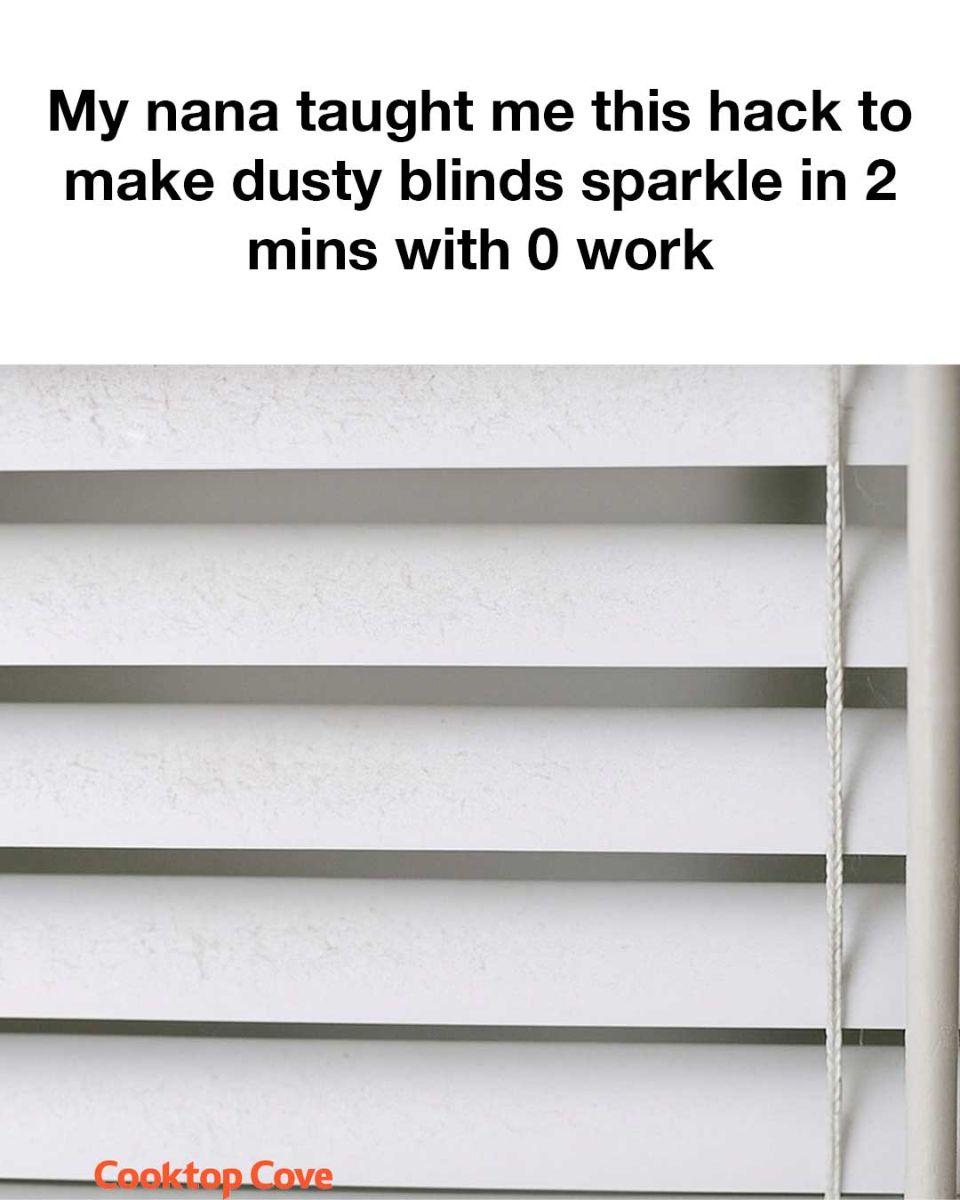
My nana taught me this hack to make dusty blinds sparkle in 2 mins with 0 work. Here’s how it works
Using natural ingredients like vinegar reduces the reliance on chemical cleaners, which can be harmful to the environment. Vinegar is biodegradable and doesn’t release harmful fumes into the air, making it a safer choice for your home and the planet.
Additionally, by utilizing materials you already own, such as old socks, you’re promoting reuse and reducing waste, further minimizing your environmental footprint.
11. Frequently Asked Questions
Q: Can I use this method on all types of blinds?
A: Yes, this method is safe for most types of blinds, including wood, metal, and plastic. However, always do a spot test with the solution on a small area first to ensure compatibility.
A: Yes, this method is safe for most types of blinds, including wood, metal, and plastic. However, always do a spot test with the solution on a small area first to ensure compatibility.
Q: How often should I clean my blinds?
A: For best results, aim to clean your blinds every two to four weeks, depending on your environment. High-traffic areas may require more frequent cleaning.
A: For best results, aim to clean your blinds every two to four weeks, depending on your environment. High-traffic areas may require more frequent cleaning.
Q: Can I use a different cleaning solution?
A: While the vinegar and water solution is highly effective, you can experiment with other natural cleaners, such as lemon juice or baking soda. Just be sure to test any new solution on a small area first.
A: While the vinegar and water solution is highly effective, you can experiment with other natural cleaners, such as lemon juice or baking soda. Just be sure to test any new solution on a small area first.
